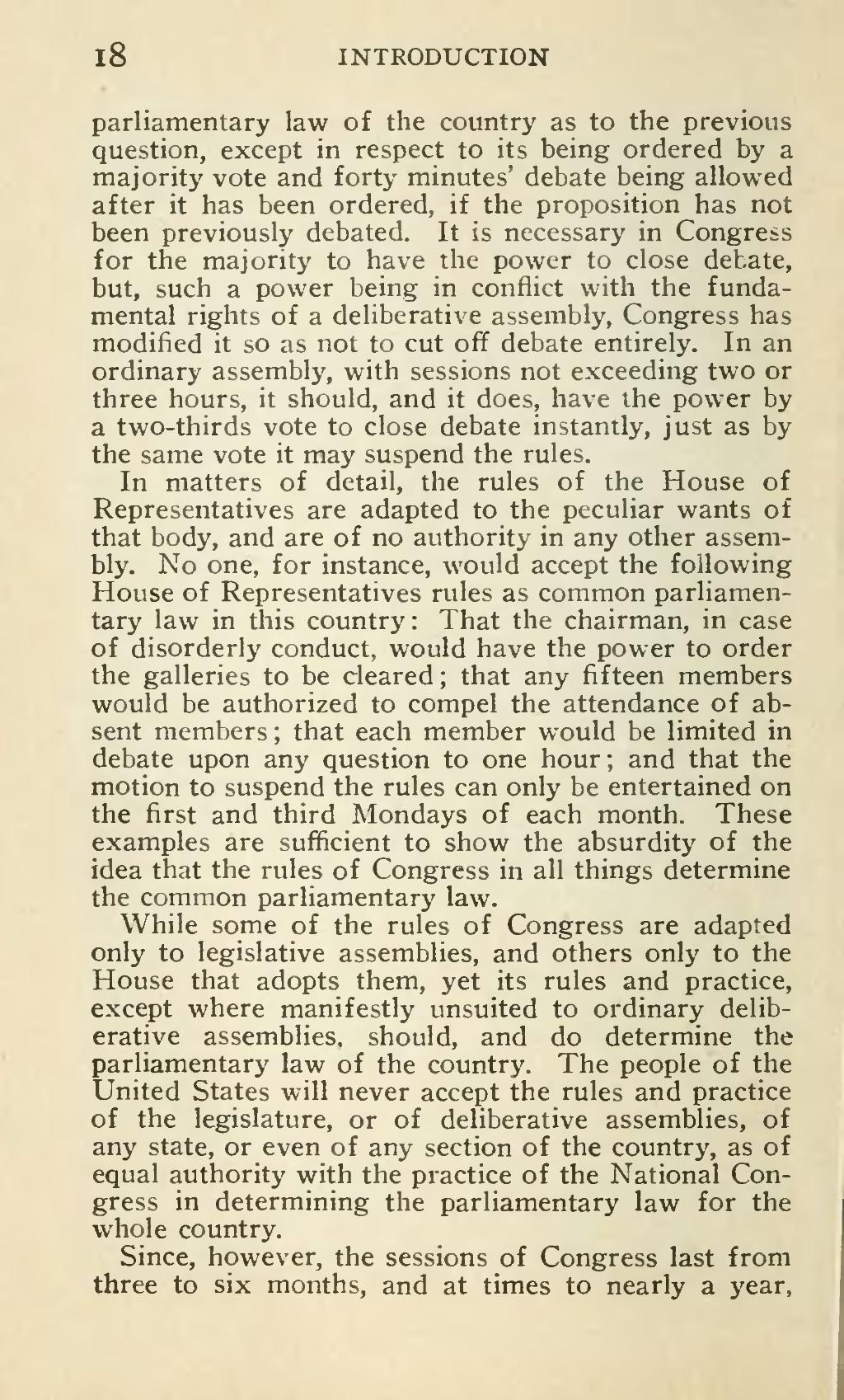parliamentary law of the country as to the previous question, except in respect to its being ordered by a majority vote and forty minutes' debate being allowed after it has been ordered, if the proposition has not been previously debated. It is necessary in Congress for the majority to have the power to close debate, but, such a power being in conflict with the fundamental rights of a deliberative assembly, Congress has modified it so as not to cut off debate entirely. In an ordinary assembly, with sessions not exceeding two or three hours, it should, and it does, have the power by a two-thirds vote to close debate instantly, just as by the same vote it may suspend the rules.
In matters of detail, the rules of the House of Representatives are adapted to the peculiar wants of that body, and are of no authority in any other assembly. No one, for instance, would accept the following House of Representatives rules as common parliamentary law in this country: That the chairman, in case of disorderly conduct, would have the power to order the galleries to be cleared; that any fifteen members would be authorized to compel the attendance of absent members; that each member would be limited in debate upon any question to one hour; and that the motion to suspend the rules can only be entertained on the first and third Mondays of each month. These examples are sufficient to show the absurdity of the idea that the rules of Congress in all things determine the common parliamentary law.
While some of the rules of Congress are adapted only to legislative assemblies, and others only to the House that adopts them, yet its rules and practice, except where manifestly unsuited to ordinary deliberative assemblies, should, and do determine the parliamentary law of the country. The people of the United States will never accept the rules and practice of the legislature, or of deliberative assemblies, of any state, or even of any section of the country, as of equal authority with the practice of the National Congress in determining the parliamentary law for the whole country.
Since, however, the sessions of Congress last from three to six months, and at times to nearly a year,
